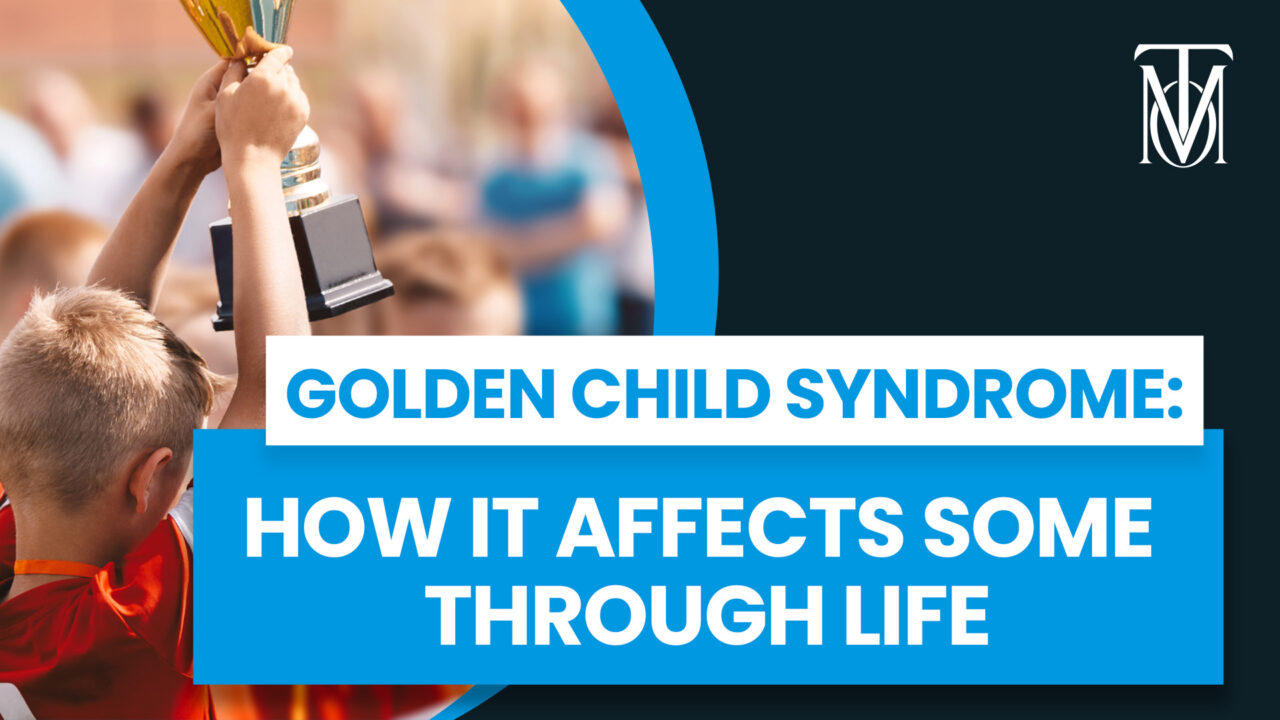What causes golden child syndrome?
The term “golden child” has become synonymous with a close-knit family unit often characterized by unconditional love and the warmth of being part of a forever home.
But sometimes, a family can be a source of disappointment and pressure.
There are numerous ways in which family dynamics can adversely affect a developing child. Children often grow up with narcissistic traits because they are victims of narcissistic parenting through no fault.
Golden child syndrome is a term that describes the paradoxical situation in which a child’s parents are overly attentive and loving but also overbearing and demanding.
It can be true for many families, but it is especially common among narcissistic parents.
The result is often an emotionally withdrawn child who grows up with no sense of autonomy or self-worth—and this can have serious consequences as they enter adulthood.
Narcissistic parent often demonstrates love by lavishing attention on their children while neglecting them emotionally or intellectually (or both).
For example, these adults may seem warm toward their kids when they need something from them—like money—but then become irritable if those same kids ask for more time with them later on down the line.
What are the characteristics of a golden child?

1. Worship Those In Power
The golden child grows to worship authority because they grew up where they always have to follow standards and an ideal. Whether it’s a new rule from the government or what most people think, the golden child is there to enforce and support it.
This is often very helpful for people in charge in the workplace and other places, where they can use the “golden child” to get others to do what they want. Not always is that a good thing.
2. Fear Of Failing
The golden child is taught from a very young age that they are more valuable than other children, but this is not always true.
In other words, it’s not them as people who matter, but their skills as gymnasts, computer whiz, or great child models. It makes the golden child so afraid of failing that they can’t function.
Even when they are adults, they can’t stop thinking and worrying that something will happen to show that they aren’t good enough in their entire life. They define themselves by their actions and what people have said about them. Without that, they’d be lost.
And they were brought up as a thing, not as a person. The golden child of any age can’t stand the thought of failing.
3. Relationships
Relationships don’t usually go well for people with golden child syndrome. As you might expect, thinking you’re better than others and holding yourself to high standards can lead to nasty fights.
The golden child perceives the world as reflecting their success and achievements, which is frequently true romantically. They tend to get sad, angry, or distant if they don’t get the praise and attention they want.
One of the most common signs of the golden child syndrome is someone who has only learned to deal with the world in terms of transactions. They have done very well, and everyone can see that for themselves.
4. Special Treatment For Existing
A person who is almost impossible to work with is one of the worst signs of the golden child syndrome. Because they were given lots of attention and special treatment when they were young, they expect everyone to comply. When you walk around thinking you’re special, the world usually gives you a lot of reasons why that’s false.
Golden children attempt to prove they’re special. When they find it, they fall into a toxic, narcissistic pattern of codependency. They get upset, quit, or cause trouble when they don’t find it. A golden child syndrome essentially replicates a narcissistic family in their adulthood.
5. Ego Gets In The Way Of Real Work
These actions and signs show that the golden child thinks of themself as special or “set apart.” Any golden child thinks they’re exceptional, deserve something, and have amazing skills.
They expect this will help them get noticed immediately at work and quickly move them up the ladder of promotions. If that doesn’t happen, they might start doing bad work, self-sabotage, work against the team, or lose interest in the job.
When their parents praise and pressure them, the “golden child” thinks they know the rules: They do well, and people praise them and give them raises.
When people find out that work isn’t all about them, they often go crazy. As you might guess, this kind of egotism tends to burn two-way romantic relationships.
6. Can’t See Their Flaws
Someone who thinks they are better than they are is another sign of the golden child syndrome.
Golden children have narcissistic personality disorder can’t see their flaws because they have been taught from a young age that they are almost superhuman in at least one way. Even though they are afraid of failing, they are usually very sure they are better than others.
They don’t want a superior or boss to tell them they’re not doing well enough. But they tend to care less about what coworkers, friends, or peers think.
They only care about what the people at the top have to say, which can make them think they are better than they are.
7. Competitive To The Point Of Being Alone
The golden child lives in a world of competition where they think they are great, are afraid of not living up to their parents’ and superiors’ unrealistic expectations, and consider their worth is based on what they can do for others.
They can’t stand the thought that someone might beat them at what they do best. Whether in sports or getting into the best, the golden child will always want to do better than their peers.
They fear someone smarter, better, or more skilled than them. That’s because someone like that would ruin their identity as the special, talented, and destined-to-be-great.
This break in the flow of space and time can’t be allowed to happen, so a golden child will often go crazy when someone tries to take their top spot.
8. Perfectionism
Part of the golden child’s need to shine brighter than everyone else is a crippling desire to be perfect.
This perfectionism usually shows up in more than one area. For example, a golden child is the kind of person who will carefully read the step-by-step pictures on the wall about how to wash their hands.
They are also the kind of people who will start over if they don’t interlace their fingers right or put enough soap on the area around their wrists.
Obsessive-compulsive disorder (OCD) is more common in golden children than in children raised in a more relaxed, warm, and productive environment.
They want to please the people who make the rules, so they want to get things right and do something “perfectly” in every way.
Final Thoughts
A healthy child is the outcome of a healthy family structure, and healthy parents rely on honesty, empathy, and understanding to build solid attachments with their children.
Golden children may seem to have it easier than scapegoats. Pressure, continual attention, and high expectations induce discomfort.
Many golden children feel inadequate and inferior, and anything less than perfection is a disappointment. This attitude is hard to break.
Golden children have the potential to reclaim their lives. No one needs your proof. You’re valid and accepted.

















